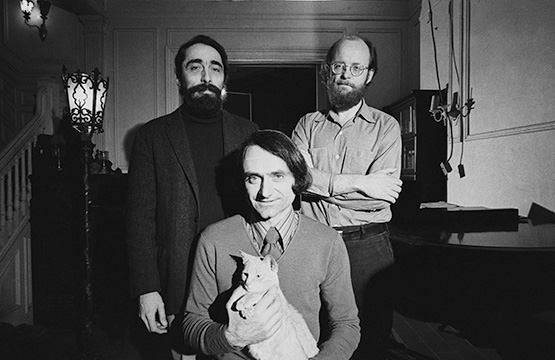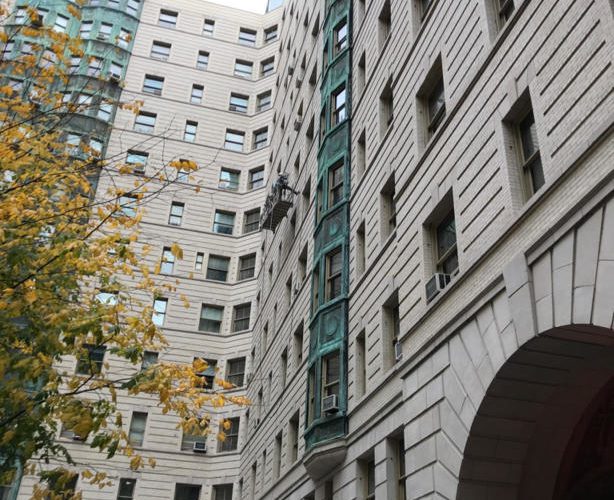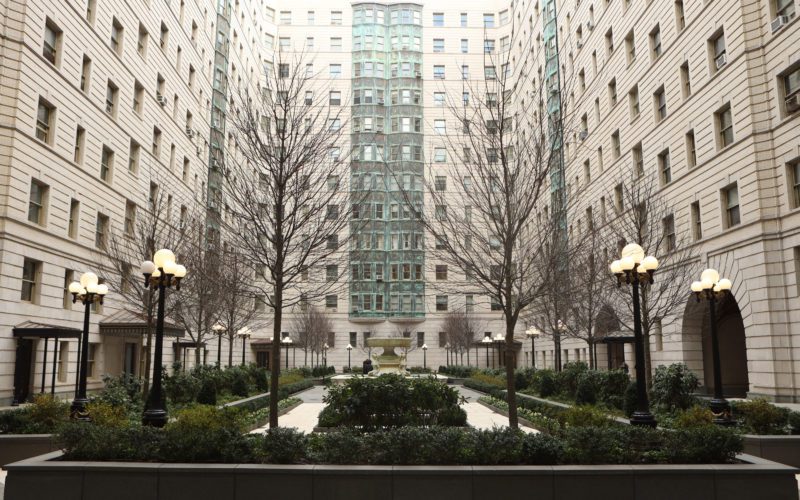
American Composers Alliance: Nicolas Roussakis, a composer and a founder of the American Composers Orchestra, passed away in 1994 at the age of 60. He was born in Athens, moved to the United States at the age of 15 and was granted citizenship at 21. He earned a doctorate in music at Columbia University, where he taught from 1968 to 1977, and he studied in Germany on a Fulbright grant. Most recently, he was on the faculty at Rutgers University in New Brunswick, N.J. He won several awards for his compositions. He received commissions from the National Endowment for the Arts and the New York State Council on the Arts and received two fellowships from the New Jersey State Council on the Arts.
Among his renowned works are the symphonic poem “Fire and Earth and Water and Air,” the “Hymn to Apollo” for small orchestra and “Ephemeris” for string quartet. He was the executive director of the Group for Contemporary Music from 1971 to 1985, president of the American Composers Alliance from 1975 to 1981 and vice president of the American Composers Orchestra, of which he was a co-founder in 1976 with Dennis Russell Davies, Francis Thorne, and Paul Lustig Dunkel.
In its 1994 obituary, the New York Times called him “an energetic promoter of contemporary music.” Among the many Times reviewers of his work, Allon Kozinn wrote in 1982 that “‘Ephemeris’ (1979), is a particularly compelling and attractive work (CRI SD 471). A string quartet, ‘Ephemeris’ depicts, in its four movements, the adventures of a summer day in an Eastern Mediterranean town – from the haunting arrival of the dawn, through a lazy afternoon, an evening village feast, and finally a dreamlike descent into night. The sounds Mr. Roussakis calls for are not always beautiful or picturesque, and this is by no means a facile ‘travelogue’ score. In the ‘Morning’ movement, for instance, the haunting introduction gives way to trenchant edginess, and ultimately, to a jarring, mechanical scraping, before returning to its original aura. Later in the work, the quartet is asked to produce a shimmering, quickly modulating sustained tone, unearthly glissando sections, and effects that create a vaguely ‘electronic’ impression. The quartet of the Group for Contemporary Music handles its assignment expertly, and makes a strong case for the piece.”
The Grand Old Teen‐agers Of Contemporary Music
By Donal Henahan
Feb. 13, 1977
Fifteen is not an age when the twinges of middleage are ordinarily felt, but the Group for Contemporary Music is no ordinary teenager. When it was started at Columbia University in 1962 the Group was something new on the scene, the first of the university‐based ensembles dedicated to performing the staggeringly difficult new music that had sprouted in the 50’s. Now the land is alive with such specialist ensembles and the Group, which moved from Columbia to the Manhattan School of Music six years ago, is looked up to as a father figure. Younger groups get up on the subway and give the Group a seat.
Read more
Concert: With Sollberger on Flute

By Joseph Horowitz
Feb. 14, 1979
LAST season the Group for Contemporary Music decided to move its chamber‐music concerts at the Manhattan School of Music from the Hubbard Recital Hall to, of all places, the school cafeteria. Judging from Monday night’s concert there, the new setting, far from seeming incongruous, provides an unusually friendly, comfortable forum for new music. And the music itself was well worth hearing.The concert’s main participant was Haryey Sollberger, who with Charles Wuorinen and , Nicolas Roussakis, directs the Group for Contemporary Music. Mr. Sollberger is well known as a composer and practitioner of adventurous music for the flute, using finger ing and breathing techniques that expand the instrument’s range of possible sounds. On this occasion, he performed a piece of his own, and took part in all five other works on the program.
Mr. Sollberger’s exquisite control of vibrato and dynamics, as well as his mastery of multiphonics, slithering microtones and tremolos of varying speeds and intensities, furnished a constant feast for the ear. Unsurprisingly, his own composition, “Hara” for solo alto flute (1977), provided the fullest range of instrumental opportunities. He sometimes drew such a pure stream of tone from his instrument that it might have been a wooden flute rather than a modern metal one.Read more






